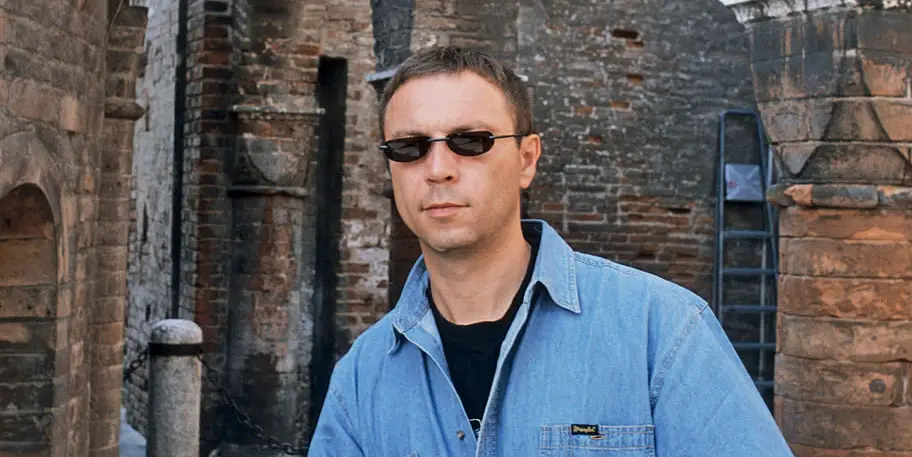Victor Pelevin, the cult author of such postmodernist classics as Oman Ra and Generation P, does not appear often in public and very rarely gives interviews. When he does, they are usually done over the internet. Pelevin’s published works, fortunately, speak for themselves. His novels are often multi-layered texts fusing elements of pop culture with folk tale and religious elements in heavy satire and hyperbole. The result is almost always a very loud comment on the culture and society that surrounds him. Pelevin’s life and books are shrouded in mystery, which adds to the allure of his novels. Further, his anti-establishment and often surreal tales found fertile ground in the youth culture that emerged as the USSR fell.
Pelevin was born in November, 1962 in Moscow. His father, Oleg, was a teacher in the military department of Moscow State Technical University. His mother, Zinaida, was trained as an economist, and managed a deli in central Moscow. The Pelevin family resided with Oleg’s paternal grandmother in a communal apartment in the North Chertanovo area, which had then recently been built up with new residential housing and neighborhoods.
In 1979, Pelevin graduated from the prestigious English School No. 31, one of a system of schools in the USSR that focused on language instruction. After secondary school, Pelevin entered the Moscow Power Engineering Institute (MEI) in the faculty of electrification and automation of industry transport, which he graduated from in 1985. He then accepted a position as an engineer at the Department of Electrical Transport at his new alma mater. At the same time, he pursued post-graduate studies at MEI until 1989. However, he did not defend his thesis and thus did not graduate.
In 1989, Pelevin switched back to focusing on language and entered the Maxim Gorky Literary Institute, a higher educational institution in Moscow preparing students for a career in writing and publishing. While there, Pelevin became acquainted with prose writer Albert Egazarov and the poet and literary critic Victor Kulla. The trio became good friends, and when Egazarov and Kulla founded their own publishing house – at first called Day, and later called Myth – Pelevin worked with the pair as an editor.
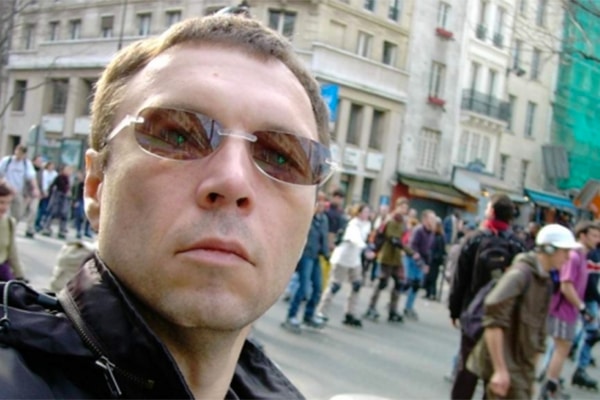
In 1989, Pelevin began publishing short stories in popular science magazines. These included “The Sorcerer Ignat and the People,” “Recluse and Six-Fingered,” and “Reconstruction.” His short stories often feature bizarre plot lines, disjointed language, and are often structured as fairy tales or parables to satirize religion and society. His first story is a tryptic fairy tale blending mysticism and magic and build up the characters of a kindly but perhaps naïve sorcerer and a self-serving arch-priest. “The Recluse and Six Fingered” is a parable named for its two chicken heroes who grew up in a densely packed slaughter house. Eventually the pair escape, travel the world, and accumulate knowledge and experience. In the chicken’s case it is the achievements of gifted individuals able to escape the slaughter house, rather than those living collectively and awaiting death, that have a happy ending. This is sharp criticism of the communal vision of happiness prized by the USSR.
After gaining experience writing short stories, Pelevin tested the market by releasing excerpts of his longer works to those same science magazines. This approach allowed him to develop a core readership before his novels were officially released in their complete form. Pelevin also wrote short stories for various newspapers and literary magazines including social ones like Огонёк and New World as well as informational publications such as Независимая газета and Новая газета
Despite his interest in literature, Pelevin did not complete his studies at the Maxim Gorky Literary Institute. In 1991, he was expelled. In an interview with Natalia Kochetkova, Pelevin conceded that the reason for his expulsion was his “having lost contact” with the university, which seems to have meant that he simply stopped attending. Pelevin added that a degree at the Institute would not have made him any more successful in literature.
In 1992, Pelevin released his first novel, Omon Ra. It parodies the educational novels that were written during the Soviet era. The novel follows a Soviet cosmonaut named Omon Krivomazov through his formative years. Pelevin exaggerates the glorification of heroes under the USSR to the point of redicule. For example, in Omon Ra at the Maresyev Flight School in Zaraisk, cadets are forced to amputate their feet after their admission to manifest Soviet heroism as shown by pilot Alexey Maresyev. Maresyev, a real figure in Soviet history, was badly injured in a plane crash yet managed to escape enemy territory to Soviet controlled land. The injury, aggravated by the effort of is escape, resulted in Maresyev having both his legs amputated below the knee. However, he resumed flying once he recovered.
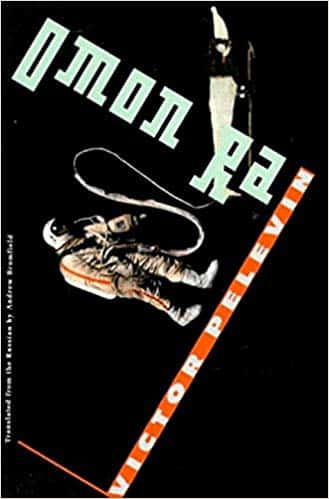
Fortunately for Omon, before his amputation can take place he is whisked away to the KGB’s headquarters to prepare for a secret mission to the moon. Omon finds out that the mission is secret and billed as “unmanned,” but in reality the party uses people because it doesn’t have the machines that should be used for such unmanned mission. Omon will be expected to kill himself once the mission is over as there is no way to bring him home. Once his mission seems to be complete, Omon’s gun misfires. He then finds himself in an abandoned Moscow Metro train tunnel, chased by KGB agents, where, it seems, even the space launch itself was a sham. Omon escapes and finds a teacher from his school who explains the state sponsored façade to him: even if the Soviet’s championing space exploration is only true in a handful of minds of Soviet citizens, that does not make the impact any different than if it took place in reality.
Omon Ra is Pelevin’s first novel that fits into the Russian post-modernist movement: a subversive form of expression that describes a fragmented narrative usually through multiple plot lines. Postmodern literature also hones in on a character’s perception of reality – or lack thereof – which is littered with pop culture references to root the story in a certain time period with the intention of destabilizing official ideologies. For example, throughout Omon Ra, Pelevin develops space travel as a metaphor for heroism being a Soviet citizen’s responsibility. At the beginning of the novel, Omon dreams of becoming a cosmonaut and by extension a hero, however, when he receives his dream job he discovers that the heroism he fantasized about was nothing more than a glorified façade. The goal, then, is to show that the state sponsored sacrifice supposedly being used to build the communist state is, in fact, meaningless and even absurd.
Pelevin’s deconstruction of the Soviet hero proved to be a success, as Omon Ra has sold over 45,000 copies in Russia. Critically, the novel was praised by reviewers as an alternate narrative for the 60s in the Soviet Union, using the right amount of humor.
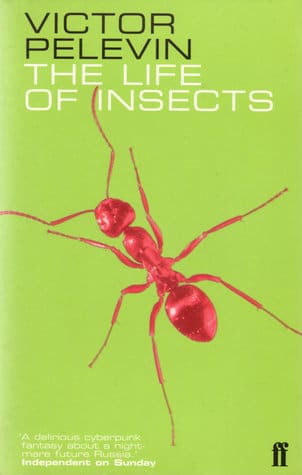
In 1993 Pelevin released his second novel, Life of Insects. This novel consists of two plot lines which are connected by a series of events taking place at a seaside resort hotel where a visiting American businessman, named Samuel Sacker, confers with his Russian business partners-to-be, Arnold and Arthur. Soon the reader finds out that all three men are also blood-sucking mosquitos, and the secondary characters are also various insects, that can transform freely from human to insect form.
The Life of Insects constant transition between the character’s lives as humans and as insects, demonstrates Pelevin’s continued interest in postmodernism. The overarching metaphor of the novel is of the poverty and social chaos experienced in post-Soviet Russia, where people felt so small that they literally become bugs – living unnoticed and easily squished. Critically, the novel was praised for depicting universal issues like religious beliefs, thoughts on death, and ones place in the world as well as specific feelings felt by those who lived through the USSR’s dissolution. The novel’s popularity has led to it selling over 55,000 copies in Russia alone.
In 1996 Pelevin released his third novel, Chapaev and Void. The novel covers two periods in time, the October Revolution and modern Russia, as it follows the friendship between Vasily Chapaev and Peter Void. In the post-revolutionary period, Peter is a poet who has fled from St Petersburg to Moscow and takes up the identity of a Soviet political commissar. In his new surroundings Void meets a strange army commander named Vasily Chapaev. Peter and Chapaev spend their days drinking, taking drugs, and discussing the meaning of life. Despite his somewhat peaceful existence, every night Peter has nightmares about being locked in a psychiatric hospital for schizophrenia in present-day Moscow, because he believes that he is a poet from the beginning of the century. Throughout the novel the reader is led to question which of Peter’s identity is the real one and whether there is such a thing as a real identity at all.
Chapaev and Void, is also postmodern, as Pelevin bombards the reader with artifacts of Russian pop culture such as with early communist propaganda and advertisements from the 90s. Pelevin intentionally designed this attack to be similar to the overload of information that was experienced in Russia after the collapse of the Soviet Union. Furthermore, Pelevin’s use of parallel plot lines draws attention to the similarities of the devaluing of reality in revolutionary Russia with the devaluing of reality that was experienced in the nineties.
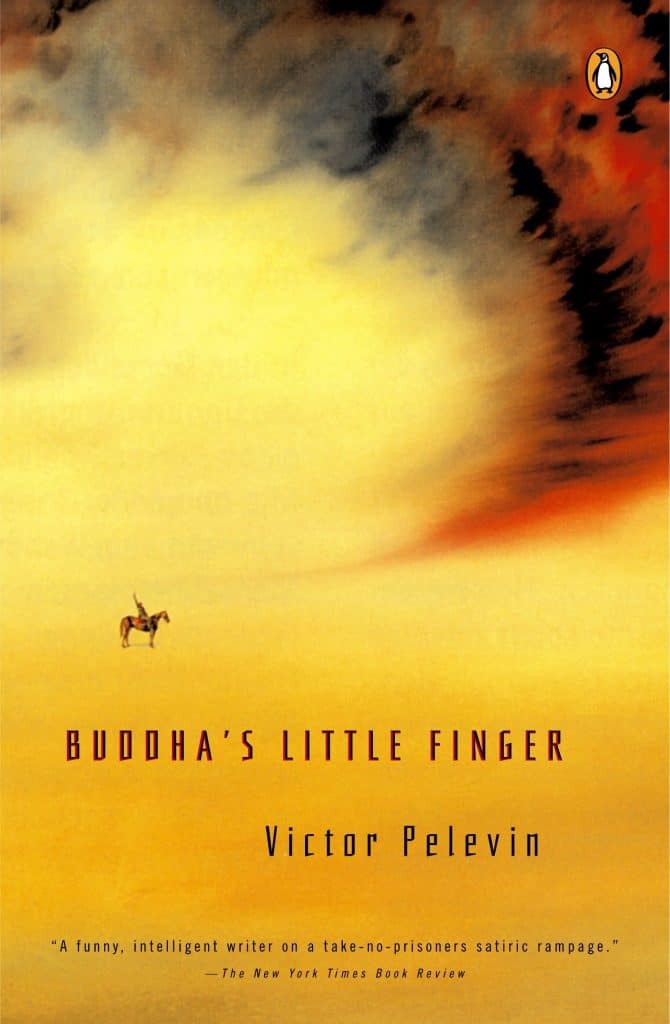
Pelevin’s Chapaev and Void was inspired by Mikhail Bulgakov’s The Master and Margarita. Both Pelevin and Bulgakov use parallel plot lines to create an expressive work of literature. In Bulgakov’s novel, the first time period is in Moscow in the 1930s and the second time period is around 134 AD in Jerusalem of Pontius Pilate. Similar to Pelevin, Bulgakov’s The Master and Margarita discusses issue of identity and the freedom of the spirit in an unfree world. They also both use the setting of a psychiatric ward to create a discourse of two important themes, reality of the individual versus the reality of the state.
Chapaev and Void was warmly received by critics for its unique plot and Pelevin’s masterful intertwining of two plot lines. For example, in a review in Publishers Weekly, the publication noted: “just when the plot seems to fragment into an irretrievable mess, Pelevin stitches things up rather nicely. […] This work will surely cement the reputation of Pelevin as one of contemporary Russia’s leading writers.” Readers in Russia also enjoyed the novel where it has sold over 150,000 copies.
In 1999 Pelevin released his breakout novel, Generation P, a postmodern novel developed from the political and economic reforms that occurred after the dissolution of the Soviet Union. The novel is set in Moscow in the 1990s and focuses on the life of Vavilen Tartarsky, a recent graduate and poet. Vavilen inherited his uncommon name from a mix of the names Vladimir Lenin and that of his father, Vasily Aksenov. In the midst of post-soviet change, Vavilen finds himself in a world fixated with advertising. Vavilen, a talented poet, finds work writing Russian versions of Western advertising slogans, creating reality television shows, and editing images of statesmen and politicians with the help of computer technology. As Russia separates itself from its communist past, and technology becomes readily available to its citizens, citizens like Vavilen begin to lose grip with reality. Vavilen continually finds himself tormented by “eternal questions” about the direction of his home-country, the nature of consumerism, spirituality, and religion.
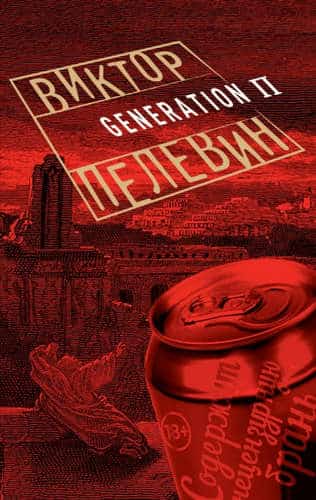
The reception of Generation P was largely divided critically. Some reviewers praised the novel for its exceptional use of language, insightful philosophical overtones, dynamic plot and originality of idea. For example, Pavel Basinsky noted in a scholarly article for Volgograd State University that Pelevin’s novel stood as an accurate depiction of the changes Russia went through after the Soviet Union collapsed as it depicts what people “heard” and the “images that constantly flashed” before their eyes. On the other hand, the novel was also criticized for its insufficient use of dialogue, as well as for its abundance of secondary characters and story lines that make reading difficult.
In 2000, the novel won the Bronze Snail award, a literary prize for the best Russian novel of the year and the Richard Schönfeld German literary prize. In October of the same year Generation P was nominated for the Booker Prize. According to Pelevin it was overlooked by the judges, indicating that he considered not winning a snub. However, in an interview with Jason Cowley for The New York Times, Pelevin also stated of the incident: “I expect nothing less from the literary establishment. […] They know I have no interest in their world of committees, reviews, and prizes. […] I have my readership. The Booker means nothing to me.”
Generation P also has a large international readership as it was published in the United States, Great Britain, France, Spain, and Germany. Some of the foreign editions, however, lost some material because of issues with translation. In particular, the English edition suffered major changes to the plot as Pelevin worked with the well-known translator Andrew Bromfield. According to Pelevin, he had to “reinvent” almost all of the slogans because the Russian words were difficult to translate into catchy-phrases in English. Despite these issues the novel achieved cult status abroad as well as in Russia. The total circulation of Generation P exceeds 500,000 copies world-wide.
In 2006 a film adaptation of Generation P began filming but was only released in 2011. Two days after the film was released the Commonwealth of Independent States reported that Generation P was watched by 255,000 people in Theaters and revenue amounted to two million dollars. Similar to the novel, the film adaptation follows Vavilen through his career in the blossoming world of advertising in Russia after the USSR’s collapse. The plot mostly follows that of Pelevin’s novel, while some chapters were cut and plotlines were shortened for cinematic value. The film was also warmly received by critics. For example, Jeannette Catsoulis for The New York Times, noted Victor Ginzburg created “a pop-art post-Soviet satirical film, […] is daring and dizzying commentary on the possibilities of advertising and the seduction of the soul.” Generation P was invited to several prominent film festivals, including the Toronto Film Festival where it won the prestigious Avantgarde program.
In 2006 a film adaptation based on Chapaev and Void began in English under the title Buddha’s Little Finger with the help of American director Tony Pemberton. The film underwent slight changes to the plot which featured an unemployed poet named Peter who was arrested by the KGB in August of 1991. During his imprisonment, the KGB tortured Peter until he lost consciousness. Peter awakens to find himself alongside the legendary Red Cavalry commander Chapaev after the October Revolution. Despite beginning the film in 2006, Buddha’s Little Finger was not released until 2015. Ultimately critics were satisfied with Pemberton’s adaptation of the film, noting interesting changes to source material such as the prominent role played by the KGB during the dissolution of the USSR. The film grossed over $2.5 million USD at the box office.
Pelevin’s lasting legacy in the Russian postmodernist movement is evident. With over fifty published works to his name and seventeen literary awards, his work in literature is canonical. Pelevin uses literature as a means to critique society and particularly captures the feelings of disillusionment that people felt after the fall of the USSR, as they peered into the future unknowingly. Despite his masterful use of language and symbolism, in an interview with Jason Cowley for Prospect Magazine, Pelevin stated “I want no part of any literary world, I’m simply not interested. The only thing that matters to me is trying to produce something that’s true to my vision and that people want to read.” His desire to simply create rather than advertise his work is a strategy that may only work for Pelevin, who has sold over 600,000 novels globally.


